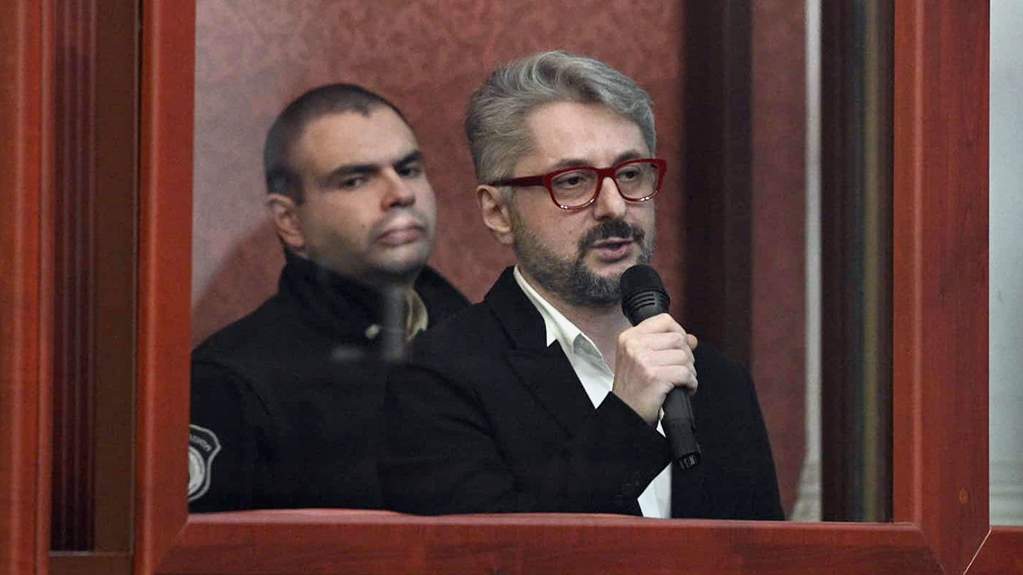Official interference undermines efforts undertaken to improve press freedom. The environment is becoming increasingly hostile for independent and opposition media – writes the international organization Reporters Without Borders (RSF), which published its yearly report on May 3, Press Freedom Day.
News
The Press Freedom Index assesses the media environment in 180 countries. Georgia ranks 77th with 61.69 points and is named among the countries where the media environment is assessed as problematic. From 2022 (89th), Georgia's situation has improved by 12 positions. In 2021, it was 60th.
Like last year, RSF notes that the media landscape in Georgia is diverse and at the same time highly politically polarized.
“Manipulation, hate speech and disinformation are widespread in the media, especially on television, the main source of information. Media owners often control editorial content, as seen with Rustavi 2, a TV channel whose editorial line changed completely after it was handed over to a former owner. Regional and community radio stations are growing in strength, while the print media’s readership is in decline and that of online news outlets is on the rise,” reads the report.
To measure the press freedom index, RSF uses 5 indicators – political, legal, economic, socio-cultural, and security.
RSF notes that the country is undergoing a new and serious political crisis following contested legislative elections in October 2020. This environment favors sustained competition for control of television networks.
Georgian law prohibits political parties from owning media, but the big networks generally defend the interests of their owners, who often have close ties to political leaders. The same goes for state-owned media, which are subject to interference by the authorities.
At the same time, the authorities often refuse to respond to media that criticize them and sometimes resort to censorship, raids, smear campaigns, and intimidation.
The situation in Georgia has deteriorated the most in this part. According to this indicator, Georgia has dropped to 121st place from 102nd in 2022.
According to RSF, the government made clear its aim to control independent radio stations and television networks by way of a change in the electronic communication law and then by a bill on “foreign agents” copied from Russia, which was ultimately aborted following street protests and international pressure. Courts have tried to attack the confidentiality of sources, which is guaranteed by the law on freedom of expression.
The advertising market is underdeveloped in print and online media, which are largely financed by donors, usually from the West. The worrying economic problems of privately-owned media have been accentuated by a change in advertising legislation and are distorting competition with the heavily subsidized state-owned media.
Georgian society is marked by strong social tensions on certain issues, which affect journalistic coverage. The topics include religion, LGBT rights, and Russian influence. Influential social figures, such as members of the Orthodox clergy, are electronically monitored by security services, thereby violating journalists’ confidential source protection.
Verbal and physical assaults on journalists are frequent, including by senior government officials, especially during election campaigns. A sustained and brutal assault on 50 reporters during homophobic counter-demonstrations in July 2021, in front of impassive security forces, marked an unprecedented setback. The lack of transparency and progress in the investigation of the event, as well as the three-and-a-half-year sentence for the director of an opposition TV channel, Nika Gvaramia, speak to the impunity enjoyed by those who commit crimes against journalists.
In terms of press freedom, Georgia is among countries such as Comoros, Sierra Leone, Malaysia, Hungary, Bulgaria, the Republic of Togo, Guinea-Bissau, Ukraine, and Ecuador. However, RSF notes that the Russian war contributed to the deterioration of Ukraine's index (79th place).
Among the countries of the region, compared to Georgia, Armenia has a better position (49th place), where the environment for journalists is evaluated as “satisfactory“. Turkey ranks 165th in the press freedom index, Russia ranks 164th, and Azerbaijan ranks 151st.
Norway, Ireland, Denmark, Sweden, and Finland are in the top five countries in the press freedom index.















